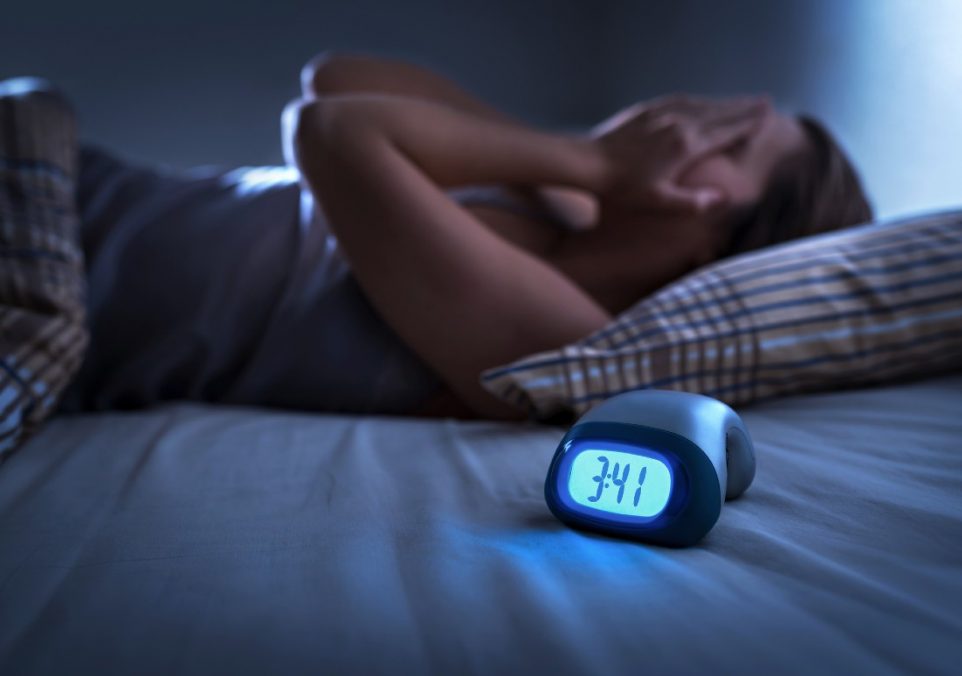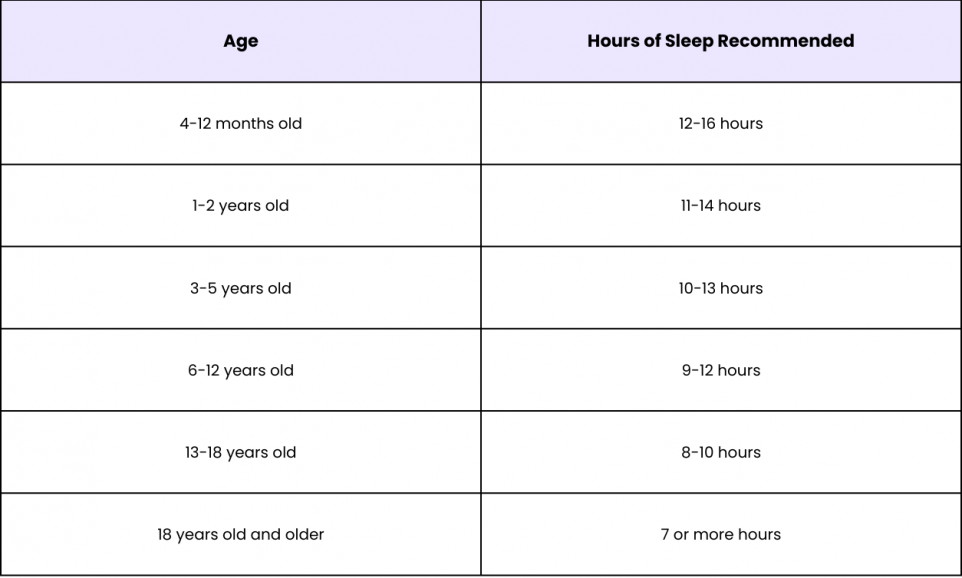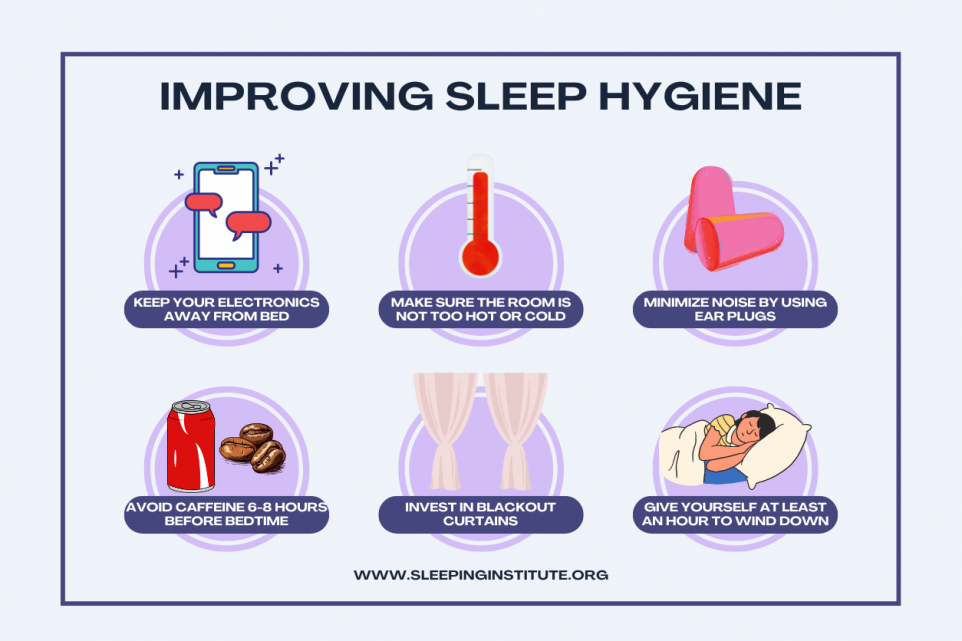Is Five Hours of Sleep Enough?

Most adults need at least 7-8 hours of sleep per night to function optimally. Most people are chronically sleep-deprived but is five hours of sleep enough to stay functional and healthy? Approximately one-third of the U.S. population gets less sleep than the recommended amount. Studies show that consistently getting less can negatively impact health, mood, and cognitive functions.
In this post, we’ll examine the link between sleep and health, take a look at the potential consequences of not getting enough sleep, and discuss whether five hours of sleep is enough to keep you healthy.
Symptoms of Sleep Deprivation
Sleep deprivation can manifest in many ways. Tell-tale signs include daytime drowsiness, difficulty concentrating or cognitive impairment, lowered motivation levels, irritability or moodiness, and increased anxiety or depression. Lack of sleep can also reduce your libido, cause digestive issues, such as constipation and bloating, and impair your immune system, leading to an increased risk of illnesses and infections.
Besides natural causes, such as age or genetics, several lifestyle factors can affect your sleeping habits. Common ones include overuse of electronic devices right before bed, consuming caffeinated beverages too close to bedtime, not sticking to a consistent sleep schedule, an unhealthy diet or vitamin deficiency, excessive stress or emotional distress, and poor sleep hygiene.
Adverse Effects of Sleep Deprivation
Sleep deprivation has been linked to serious medical conditions, including diabetes, cardiovascular disease, obesity (due to hormonal imbalances caused by sleep deprivation), stroke, Alzheimer’s, and more. Some studies also suggest that lack of sleep can increase the risk of death from all causes.
Chronic sleep deprivation, defined as sleeping less than 6 hours per night on a regular basis, is linked to numerous health problems, including an increased risk of obesity, heart disease, diabetes, and reduced immune function. The National Heart, Lung, and Blood Institute emphasizes that sleep deficiency can significantly affect everything from cardiovascular health to emotional stability.
Are Five Hours of Sleep Considered Sleep Deprivation?
According to the American Academy of Sleep Medicine (AASM), adults between the ages of 18 and 65 should sleep for seven to nine hours per night. Anything less than six hours per night is considered insufficient, although most experts suggest sleeping for at least seven hours to prevent the adverse effects of prolonged sleep deprivation.

It’s important to note that while some people may be able to sustain a five-hour sleep pattern without major consequences to their health or cognitive function, this doesn’t mean it’s safe for everyone — especially when practiced over long periods of time. Individuals have different needs regarding their sleep requirements, so it’s important not to make assumptions about what works best for you based on what works for someone else.
How to Improve Sleep Quality
One way to improve the quality of sleep is by optimizing your pre-sleep routine. Avoid consuming caffeine after lunchtime and limit your exposure to blue light screens, like TVs and smartphones, for at least two hours before bedtime. Consider using a digital alarm clock so you can leave your phone in another room and you won’t be distracted by it. Other helpful tips include reading a book instead of watching TV right before bed and implementing a wind-down routine, such as taking a warm shower or doing light stretching exercises, to help relax the body and mind and promote a smooth transition into sleep.
Eating healthy meals throughout the day and exercising regularly can help promote better sleep quality, and vitamin D supplements can help to improve natural melatonin production among those with lower levels.
Other supplements, such as melatonin and valerian root, may be effective in helping you fall asleep faster, while magnesium can relax your muscles and calm the nervous system. However, you should consult with your healthcare provider before starting any supplement regimen to make sure it’s safe for you and your specific health needs.
Sleep Hygiene Tips
As mentioned above, creating a consistent pre-bed routine will help you train your body to sleep better by establishing a steady rhythm for your internal clock on days when you have adequate time for rest; this means going to bed around the same time every night — even on weekends or holidays — so that your body knows when it’s time to rest and when it’s time to wake up each day.
Blue light emitted from electronic devices, such as smartphones, affects melatonin production, which is responsible for regulating natural sleeping patterns. If you must use an electronic device before bed, try using blue light filters to minimize reduced melatonin production.

Creating an ideal sleep environment means more than just having a comfortable mattress and bedding (although this is important too):
- Maintain optimal temperature in the room so it’s not too hot or too cold.
- Lower the noise level in and around your bedroom area by closing windows whenever possible or using a sound machine to block out unwanted noise. Ear plugs can also be helpful if you have a partner who snores or you live on a busy street with a lot of noisy nighttime traffic.
- Consider investing in blackout curtains if you live in an area where street lights let unwanted light into your room — plus, room-darkening curtains can also help to lower the noise level in your sleep space.
- If your partner tosses and turns a lot and often wakes you with their movement, you may want to upgrade your mattress to one that has better motion isolation.
Prolonged sleep deprivation can have serious consequences for our physical and mental health, so it’s essential to prioritize your sleep to stay healthy and function at your best. You can take several steps to improve your sleep quality — such as avoiding blue light exposure before bed, creating a consistent sleep schedule, and optimizing your diet and exercise habits. Moreover, implementing simple sleep hygiene tips, such as investing in blackout curtains and noise machines, can help create an optimal sleep environment. Getting the recommended seven to nine hours of sleep every night is vital to ensure physical and mental well-being. Don’t take sleep for granted — it’s as important for your health as diet and exercise!
Why Trust Us?
At The Sleeping Institute, we're dedicated to transparency, impartiality, and accuracy in every article we publish. Our reviews are based on comprehensive analysis and firsthand experience. Staying current with the latest advancements in sleep technology, we offer up-to-date, reliable, and unbiased information to help you make informed decisions for a better night's rest. Let us be your trusted guide in the ever-evolving world of sleep technology!